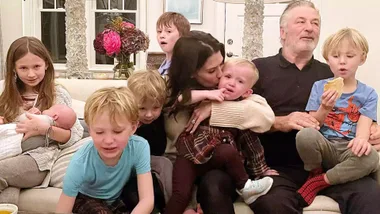
We’ve all been there, mindlessly blurting out words in anger or frustration at our kids. While many things seem relatively harmless, kids are like sponges, soaking up all those underlying messages in what we’re saying. So be aware of the effect your words have on your child’s emotional wellbeing and cut out these common statements from your vocab. By Katy Moore

Shame is a very destructive emotion often prompting intense guilt. Even if a child acts badly, it’s important to help them understand why the actions are wrong and that we all make mistakes we can learn from.

Kids respond best to rules when there’s reason behind them. Spend a few seconds helping them understand why, so they see you as a respected authority figure rather than a dictator.

Whether your son wants the latest Ben 10 figure or you’re stuck in a battle with your screaming daughter over a cancelled play date, you have probably uttered this sentence more than you think. However, it can show your child you don’t find their feelings important and in turn that they don’t have to respect yours. Remember, validating their emotions doesn’t mean giving in to their demands.

You wouldn’t automatically kiss people you were told to kiss and the same goes for kids. Respect their personal space and allow them control over who gets their affection.

Comparing children with a sibling or school friend often plants destructive seeds of inferiority which can create rebelliousness and sibling rivalry. Instead, praise them for what they do well and offer help in areas where they struggle.

Not only can this instil a sense of fear in one parent but it’s a comment that shows you’re not in control of the situation. Passing the buck undermines your own authority and ultimately makes children question why they should listen to you in the first place.

Strangely, not all positive reinforcement is positive. Of course your child is the greatest but too much unspecific praise can make it meaningless: be specific.

Children’s ability to feel safe and communicate feelings is essential for their growth. So while you think you’re being kind saying this, you’re actually implying that their emotions aren’t valid. Listen and deal with their fears rather than discounting them.

It’s not helpful to label your child bad or naughty as they’re likely to believe this is who they are and try to live up to it. Try showing disapproval of the behaviour rather than the child.

Planting abandonment issues in your child is not advisable. Kids don’t know you wouldn’t leave them behind and when of course you don’t, you create an empty threat. Have patience, realise children get distracted quickly and find calm ways to speed thing up.











